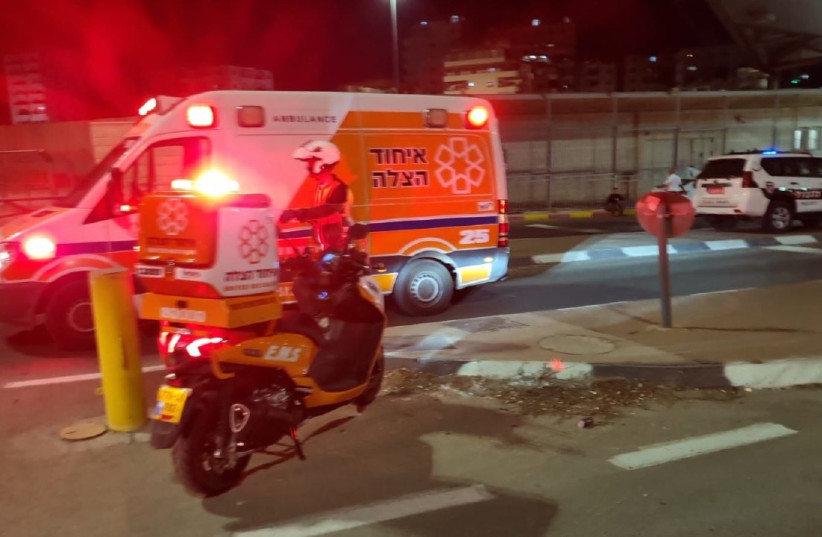As Israelis were celebrating the Sukkot holiday, the IDF was placed on high alert on two fronts, to prevent any miscalculation or terror attack that could bring the country into yet another devastating conflict.
The deadly shooting attack at the Shuafat crossing outside Jerusalem on Saturday took the life of 18-year-old Sgt. Noa Lazar was a clear reminder that attacks can come at all times, in all places.
Before the High Holidays, the military was on the highest level of alert in the West Bank and Jerusalem due to the number of warnings of possible terror attacks. A record 23 battalions were deployed to the area along with thousands of police officers.
Violence has been rampant since the spring when some 20 Israelis were killed in terror attacks by Palestinians and Israeli-Arabs with ties to the Islamic State terror group. Operation Break the Wave, conducted by the military and other security bodies, was aimed at putting an end to terrorism, with the understanding that it would not be a quick one.
The operation is expected to continue as long as necessary, even into 2023.

But with such a high number of troops and reservists deployed to the area, the state comptroller released a scathing report warning that the IDF cannot continue a long-term military operation in the West Bank due to logistical support deficiencies.
Is Israel prepared for another wave of terror attacks?
During surprise visits to the Kfir Brigade training base in the Jordan Valley, as well as the Yakir outpost in the West Bank, State Comptroller Matan Englmen and his team saw troops living in horrid conditions with mold on ceilings, broken toilets, lack of air conditioning, cold water and food, as well as subpar access to medical treatment.
“The IDF is not sufficiently prepared, logistically, for the continuation of the fighting in [the West Bank],” he said.
Along with the shocking conditions, Engleman spoke with reservists whose training is aimed for the north, and because they are currently operating in the West Bank, are afraid that they will not be fit for war against Hezbollah.
They told Engleman that they do not undergo training suitable for emergency operations in the North, and “therefore they fear that in the moment of truth they will not be prepared.” And it is exactly in the North where Israel’s military faces its biggest challenge, and one that could explode with any small miscalculation.
And what about the Karish gas rig?
On Sunday, the gas drilling company Energean said it had begun testing the pipeline of the Karish gas rig, despite the heightened tensions between Israel and Hezbollah. The testing began after the defense establishment gave the company the green light. Once the tests are completed, full operations of the rig could begin within weeks.
The Karish rig is in the center of a maritime border deal that is being negotiated between Jerusalem and Beirut.
And while the deal would hopefully reduce the chance of an all-out war between the two enemy states, Hezbollah has warned against drilling before a deal is signed. Israel has made it clear that Karish will begin operations with or without a deal.
Defense Minister Benny Gantz placed the defense establishment and the IDF on high alert in the north, for both offensive and defensive operations. But the verbal huff and puff of politicians, from both sides of the spectrum, are likely just words rather than concrete intelligence warnings like in the West Bank.
Mossad Chief David Barnea told Israel’s security cabinet that Hezbollah Secretary-General Hassan Nasrallah does not want conflict with Israel at the moment. IDF officials have echoed Barnea’s comments, saying that a deal will likely be signed sooner than war breaks out.
Nevertheless, there remains the possibility that Nasrallah might try to provoke Israel by sending drones, even armed drones, over the Karish as he did in July.
And, “if Hezbollah makes that mistake and attacks Israel in any way — by air, sea or land — Israel will defend itself resolutely, it will attack resolutely, and if things develop into a broader conflict, we will take Lebanon apart, and that would be a great pity,” Defense Minister Benny Gantz told Channel 12 on Friday night.
A war between Israel and Hezbollah could drag in the entire region, including Iran and its various proxy groups from Iraq to Yemen.
But, officials from Israel’s defense establishment have made it clear numerous times that while the Jewish state is not interested in any escalation, it will defend its citizens and security interests.
With the northern front and the West Bank at risk for conflict that could break out at any moment, the IDF’s ability to simultaneously operate effectively on multiple fronts is crucial for Israel to deal with the region’s unpredictable and explosive nature.
